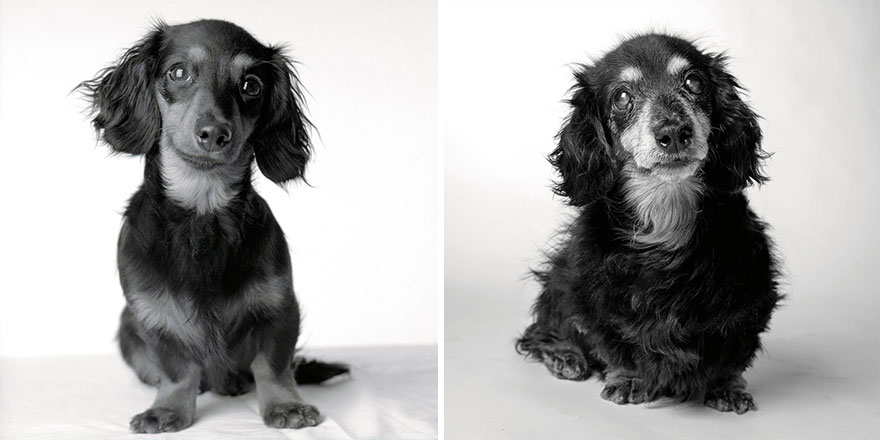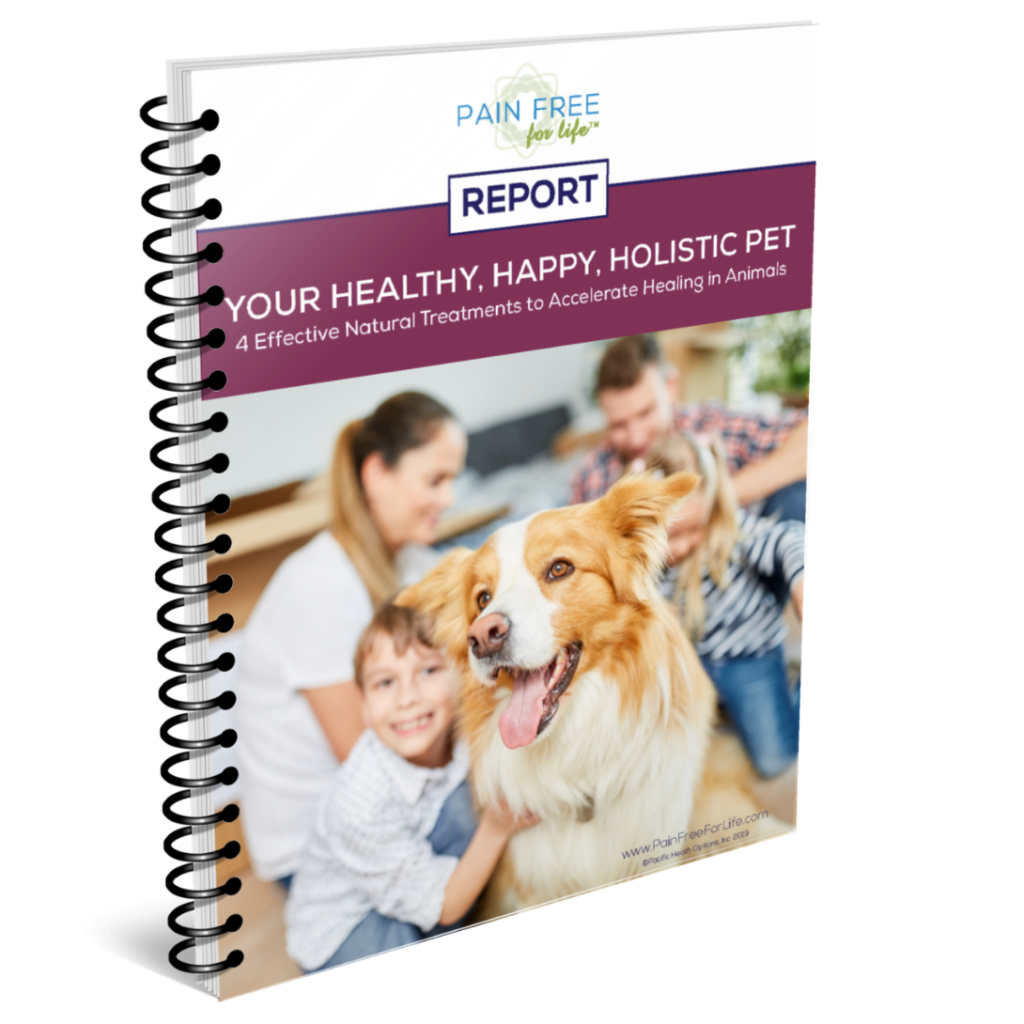
No one likes to think about their pet growing older. But aging is a fact of life for animals as well as people—and many people find that a pet’s golden years are actually some of the most precious.
By the time your pet reaches senior status, your bond with him will have developed into a beautiful friendship. You know each other’s quirks and have learned to iron out your differences. And even though your older animal friend may not be up to the same kinds of adventures as when he was young, he’ll make up for it in the depth of love and devotion that only maturity brings.
Using holistic health care for aging pets will help give your pets have the physical, mental, and emotional support they need to age gracefully. This natural, wellness-oriented approach will help ensure that you can both enjoy these wonderful autumn years together to the fullest.
Senior vs. Geriatric Pet Care
Before we share our top holistic senior pet care tips, let’s first define the difference between “senior” and “geriatric” animals.
“Senior” simply refers to an animal that has reached an age where most animals of his type have passed their prime. This age varies according to species and breed. For example, very small dogs routinely live well into their teens, while giant breeds rarely make it to 10 years old. It’s not unusual for cats to live into their early 20’s, while the average life span of a horse is 25-30 years. A senior animal in good health can enjoy an excellent quality of life and remain active throughout this time.
“Geriatric,” on the other hand, refers to an older animal in fragile health. These pets demonstrate one or more of the classic health failings that most people associate with old age: loss of energy, loss of mobility, cognitive issues, weight loss or gain, weakness, fatigue, and/or compromised immune function.
Just because an animal has reached senior status does not mean he will ever become geriatric. This is why good nutrition and natural preventive care is so important.
Natural Preventive Care for Older Pets
For senior animals, the key to a long, happy life—and the ultimate aim of holistic animal care—is to support the body system to minimize chances of your pet ever having to experience a geriatric state. Ideally, you will want to give your pet the healthiest diet and lifestyle possible from the time it is young. But even if you never thought about preventive care until you noticed those first gray hairs on your furry friend’s face, you can still help prolong his life and improve quality of life in old age by making appropriate changes now.
As animals age, their needs often change. Here are a few of the best holistic senior pet care tips for disease prevention and optimal health:
Great nutrition. Regardless of your pet’s age, giving them the most nutritious diet possible is the best investment you can ever make in their health. Read labels carefully; many pre-packaged pet foods contain questionable ingredients. For instance, the corn and wheat listed as primary ingredients in many dog foods are not easily digestible and cause allergic reactions in many dogs. And don’t get us started on what the ingredient called “animal byproducts” often means. We recommend consulting a good, holistic veterinarian or animal care specialist to find out the best things to feed your specific pet.
Once your pet meets senior status, keep in mind that his digestive system may be a little more sensitive or sluggish than it used to be. Follow these guidelines for older pets:
- Stick to easily digested ingredients. Avoid feeding table scraps, especially highly seasoned foods.
- If you make any dietary changes, do so slowly and gradually.
- As your pet gets less active with age, you may need to cut back on the calories by reducing his daily intake and/or switching to a diet lower in fat.
- Despite the fact that many pet foods formulated for senior pets are low in protein, many veterinary nutritionists are starting to recommend higher protein levels for older animals to help them maintain good muscle mass and organ function.
- Make sure your pet has plenty of fresh air and water available at all times. This is especially important for senior animals because they are more easily dehydrated.
Exercise. Just because your older pet is no longer bouncing off the walls doesn’t mean he doesn’t need exercise. In fact, maintaining a regular exercise routine is one of the best things you can do to help him stay fit and spry into old age. Just be sensitive to his changing needs. If you notice him panting, stumbling, or falling behind on a walk, you may need to ease up on your expectations. Also be aware that senior animals may be more heat sensitive. Avoid pushing them to exercise hard on hot days.
Comfort. As your pet ages, he will appreciate a soft place to lie—especially if he suffers from animal arthritis. Consider adding an extra pillow or two to his bed, or extra bedding for horses and similar animals. Keep temperatures within the proper comfort zone for the species.
Stress reduction. Changes in hearing, eyesight, cognition, and mobility may cause anxiety in older animals. You can help counteract this by creating an environment that keeps stress to a minimum. Routine makes animals feel safe and secure, so avoid sudden changes in routine if you can. You may need to adapt your home to make it more accessible for your older pet. For example, if your pet’s eyesight is failing, keep the floor picked up and avoid moving furniture, so he can find his way through the house without tripping or bumping into things.
Microcurrent therapy can also be a huge stress reliever for older pets. It is a non-invasive, holistic treatment that many animals enjoy, and can help alleviate anxiety as well as pain in older animals. For recommendations on helping anxious animals, check out our previous article on natural anxiety treatments for pets.
Dental care. Dental health is just as important in animals as it is in people. Not only can pets get painful toothaches, but dental disease can affect the entire body, including heart health. As your pet ages, don’t neglect this vital aspect of preventive care.
You may have noticed that many of the preventive care measures for senior animals listed above correspond closely to many of the Interactive Elements of The Hache Protocol for Pain Resolution. There’s good reason for this. It’s because these practices lay the foundation to support the body’s own healing process.
An animal whose immune system is so well supported is far more likely to live out its days in vibrant health. And even if your pet does end up falling ill, he’ll be much more resilient if he has the advantage of good basic care. Which brings us to our final topic:
Treating Illness in Aging Pets—Naturally
We live in an imperfect world. Even if you give your pet the best of everything you can, it’s no guarantee he will never fall ill. Whether from genetic or environmental causes, pets do become more susceptible to disease as their immune systems age.
The most common diseases found in older pets are, for the most part, the same chronic diseases suffered by humans: cancer, arthritis, organ dysfunction, and so on. The standard veterinary approach to these diseases also mirrors the standard medical system’s approach to human disease: pharmaceuticals and/or invasive surgery. These treatments are designed to alleviate symptoms rather than create a state of wellness. Often, they create side effects that are worse than the original problem, and can lead to a slippery slope of degeneration in the older animal.
Fortunately, there are holistic treatments available that work with your pet’s body to support its own ability to heal itself. In our experience, natural treatments such as homeopathy and microcurrent therapy, when used correctly, are extremely effective at restoring the body to a natural state of health and well being. While we practice on humans, we see it all the time in animals, too! Older pets in particular can benefit from these treatments because they are gentle and non-invasive.
Pain, Microcurrent, and the Older Pet
It’s important to note that many of these chronic diseases go hand in hand with pain. But most animals don’t show pain until it’s quite severe. So watch your older pet carefully for signs of pain.
Top signs of pain in older animals:
- Restlessness
- Limping
- Weight loss
- Whimpering
- Panting
- Dilated pupils
- Behavior changes
- Excessive grooming
- Aggression
Microcurrent is especially effective at alleviating pain in animals as well as people. In contrast to pharmaceutical drugs, it provides natural pain relief that actually supports the body’s own healing systems.
Download Our Free Report for More Holistic Pet Care Tips
If you’d like to learn more about four of the most effective holistic treatments we’ve found for animals—including how microcurrent therapy can help keep your aging pet comfortable and loving life— then don’t miss our latest info guide, Your Healthy, Happy, Holistic Pet: 4 Effective Natural Treatments to Accelerate Healing in Animals.You may just discover something that helps your pet live longer than you ever thought possible!

Source: http://veterinarymedicine.dvm360.com/senior-vs-geriatric-semantics-or-significant





